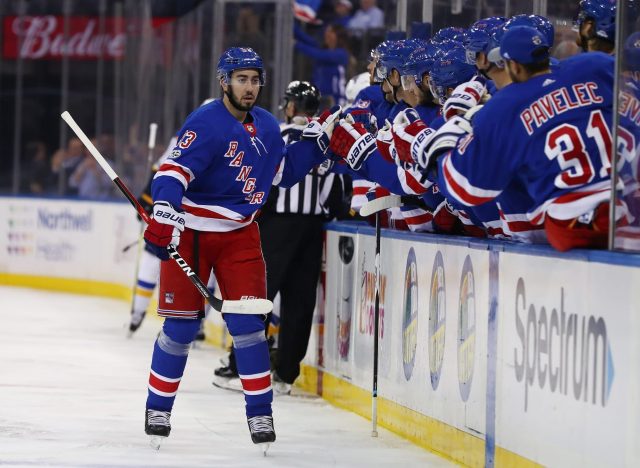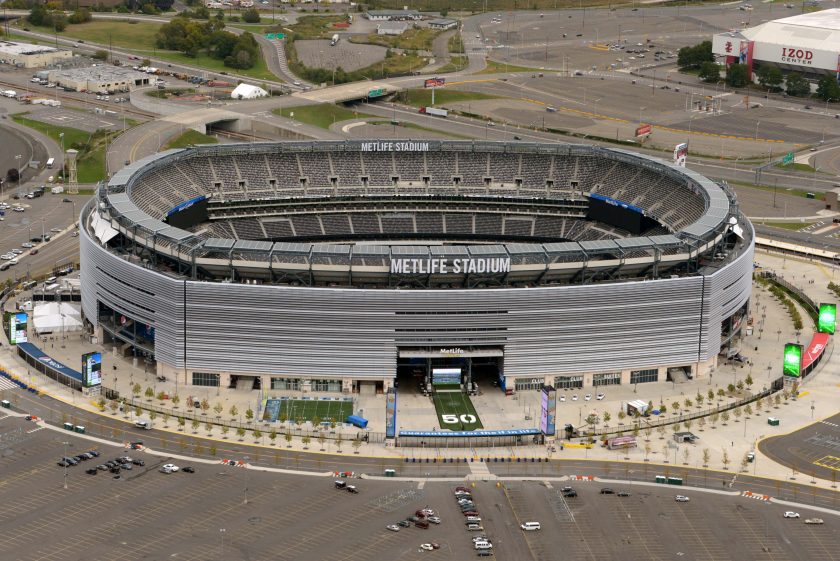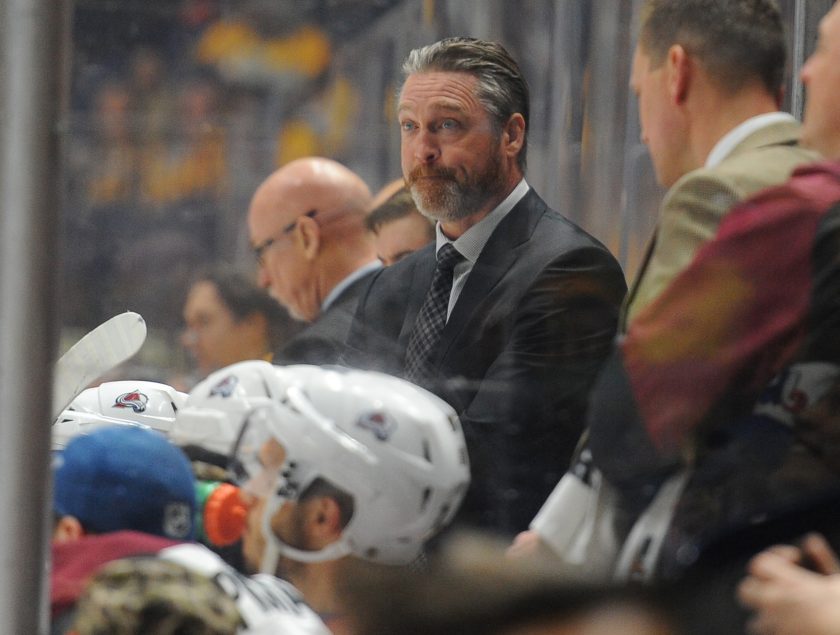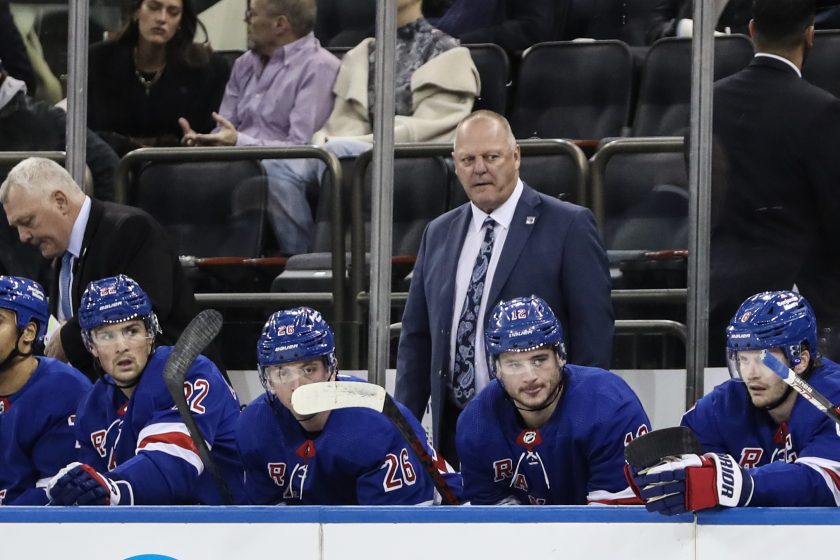Mika Zibanejad Has Been New York Rangers’ Only Bright Spot

Mika Zibanejad has elevated his play and finally turned into the player the New York Rangers thought he could be.
[dropcap]E[/dropcap]veryone knows that Mika Zibanejad is an extremely talented player, but the biggest question surrounding the 24-year-old center has always been whether he could take the next step?He’s answered that with a resounding ‘yes’ in the 2017-18 season.
After trading away number one center Derek Stepan before the season, Zibanejad has been everything the Rangers could have asked for. He’s been winning faceoffs, scoring key goals and has been responsible in the defensive zone.
[sc name=”Rangers Center”]For now, at least, he’s silenced the questions about whether the team had enough talent at center. Zibanejad has scored five goals in four games—four on the power play—a hot start that comes as a surprise only because the team didn’t know what to expect after he missed most of training camp with an illness.
Head coach Alain Vigneault called out Zibanejad at the end of last season, saying that he was at a “crossroads” and needed to “figure it out,” according to NHL.com’s Dan Rosen.
AV said Zibanejad is at a "crossroads" in his career and he needs to "figure it out" because he absolutely can be a high-end C in the NHL.
— Dan Rosen (@drosennhl) May 11, 2017
Even with Vigneault calling him out, the Rangers still rewarded Zibanejad with a five-year contract extension over the summer to be the team’s number one center.
Zibanejad got off to a hot start last year, recording eight points in eight games. He looked like he was going to take that next step until he broke his fibula on Nov. 20th against Florida, an injury that would force him to miss over a month. He wasn’t the same player when he returned, as it took time for him to get his legs back.
Despite the injury, Zibanejad’s first season in New York was a successful one. In the first round of the Stanley Cup Playoffs, he scored the game-winning goal in Game 5 against Montreal to give the Blueshirts a 3-2 series lead.
He finished the year with 37 points—14 goals and 23 assists—in 56 games.
This season. Zibanejad seems to have accepted Vigneault’s challenge. He’s centering a line with Pavel Buchnevich and Chris Kreider, which has been excellent. The three seem to play well off each other and have quickly built chemistry, which shows on the ice.
Along with the goals, Zibanejad has won a career-high 56 percent of the faceoffs he has taken. Even though some fans don’t think faceoffs are important, they play a major role in any team’s success. A team that looks to play with the puck needs to have it—obviously—and there is no better way to get the puck then by winning draws. If Zibanejad can keep doing that, the Rangers puck possession numbers will increase and, as a result, the team will generate more chances.
He’s also shooting the puck far more often than he did last year. A lack of shots was one of the big knocks on Zibanejad’s game last season. He was too focused on trying to set his teammates up instead of taking the shot. He’s already put 20 shots on goal this year, forcing the opposing goalie to try and make a play. That’s never a bad thing.
Zibanejad’s hockey senses also seem to be improving. In a game against the Montreal Canadiens, Zibanejad noticed a hole in the defense near the net and capitalized by scoring his fourth goal of the season.
His net presence this year has been something to marvel at—and something that the Rangers haven’t had that the past few years.
The only flaw in Zibanejad’s game that you could point out this year is his plus/minus. While he’s improved defensively, he’s found himself in bad positions on the ice at times, which helps explain why he’s minus-three on the season.
Shaky defense was the reason that Vigneault broke up Zibanejad, Kreider, and Buchnevich last year. That’s become a theme once again, but you take the good with the bad when they are putting up goals and creating scoring chances.
Right now the Rangers don’t have a ton of depth up the middle. With Zibanejad performing like he is now, the Rangers might be better off looking for a third-line center then a top-line center. The key for Zibanejad, though, is to consistently play the type of game he is playing now.
If Zibanejad can keep this pace up, that five-year, $26.7 million contract he signed this summer will look like a steal.
[sc name=”Rangers Link Next” link=”https://elitesportsny.com/2017/10/11/new-york-rangers-jesper-fast-nearing-return-game-action/” text=”Jesper Fast Nearing Return” ] [sc name=”Rangers Section” ]Dominick is a graduate of Canisius College. He has covered the Rangers for the last seven seasons and the Yankees for the last four.






